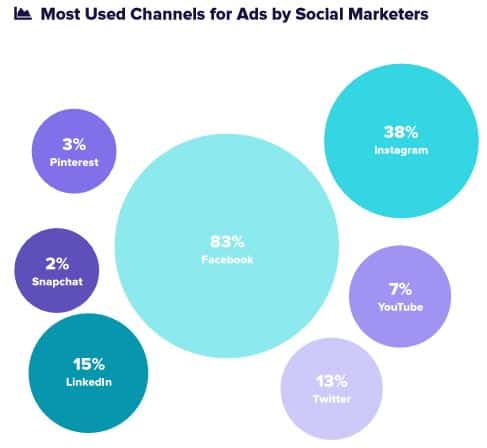link to article
Social Marketers Still Aren’t Giving the People What They Want
Sprout Social found a disconnect between brand priorities and consumer desires
What brands believe consumers want from them on social media doesn’t quite line up with what consumers actually want from them on social media, according to the Sprout Social Index 2018, a new study from social media management tool Sprout Social.
The company asked more than 2,000 social marketers about their approach to “structure, goals and content,” and it then cross-referenced their answers against input from consumers.
Sprout found that the top three priorities for social marketers are posts that teach something (61 percent), posts that tell a story (58 percent) and posts that inspire (53 percent).
Meanwhile, the top three things that consumers are looking for are discounts or sales (72 percent), posts that showcase new products or services (60 percent) and posts that teach something (59 percent).
Sprout wrote, “The sole overlap between top marketing priorities and consumer preferences is posts that teach. If you aren’t already, meet consumers in this sweet spot in the consideration stage. This content takes consumers a step beyond knowing who you are, to knowing what you do and what space you are a part of or an expert in.”

Other content-related findings from Sprout Social Index 2018 included:
- Consumers are 13 percent more likely to engage with entertaining brand content than to share it with their audiences.
- Consumers are equally likely to engage with and share inspirational content.
- Consumers are 31 percent more likely to engage with storytelling content than to share it.
- Consumers are 24 percent more likely to engage with promotions and deals than to share them.
- Consumers are 150 percent more likely to engage with employee advocacy posts than to share them.
- Consumers are 90 percent more likely to engage with posts that showcase company personality and announce company happenings than they are to share them with friends on social.
- Consumers are 50 percent more likely to engage with posts showcasing new products and offerings than to share them.
The company also found that the No. 1 challenge for social marketers is measuring return on investment, with 55 percent of them citing it, well ahead of the rest of the top five: understanding cross-channel social success (42 percent), developing a strategy to support business goals (39 percent), determining what content to post (27 percent) and securing budget and resources (25 percent).
Customer service came up quite often in Sprout’s research. The company found that 88 percent of social marketers understand the importance of customer service via social media, and 45 percent of consumers had reached out to companies via social media.
For those consumers, 57 percent had questions for the company, 45 percent had issues with products or services and 34 percent wanted to commend the company on their product or service.
“When a customer reaches out with a question—their No. 1 reason for reaching out on social—use this as an opportunity to form a relationship, not just resolve an issue,” Sprout wrote.
The survey found that customer care on social not only contributes to brand perception, but also impacts a company’s bottom line. Twenty-one percent of consumers are more likely to buy from brands they can reach on social, the report noted, and 21 percent said they would rather talk with a brand on social platforms than call.
“This tells us that social customer service has a financial impact and is swiftly becoming the consumer’s preferred care channel,” Sprout continued.
Sprout called employee advocacy “the new influencer marketing,” saying that 71 percent of social marketers currently use employees as influencers or advocates or want to do so in the future, while only 19 percent had budgets for influencer marketing programs.
On the consumer side, 61 percent said they would be more likely to research products or services recommended by friends on social channels, compared with just 36 percent for plugs from influencers or celebrities.
Despite the clear importance of social media to brands’ marketing efforts, more than one-half of social marketers told Sprout they did not have access to all of the software they needed, and 65 percent expressed the need for dedicated resources for content development.
When it came to which social channels they focused on, 97 percent of social marketers said Facebook was their most-used and most-useful social network, and 83 percent said they buy ads on Facebook, which is also used by 94 percent of the consumers Sprout spoke with.
In a bit of a surprise, Instagram dominated Snapchat among respondents to Sprout’s research, with 83 percent of marketers saying they use the Facebook-owned photo- and video-sharing network, compared with just 13 percent for Snapchat, and 51 percent of consumers using Instagram, versus 30 percent for the messaging application.
